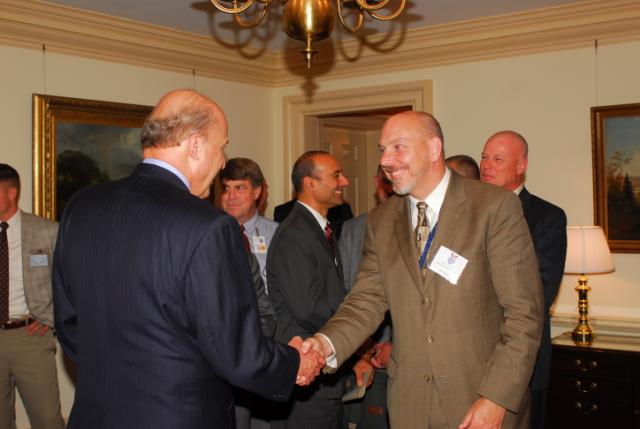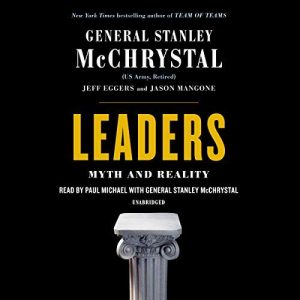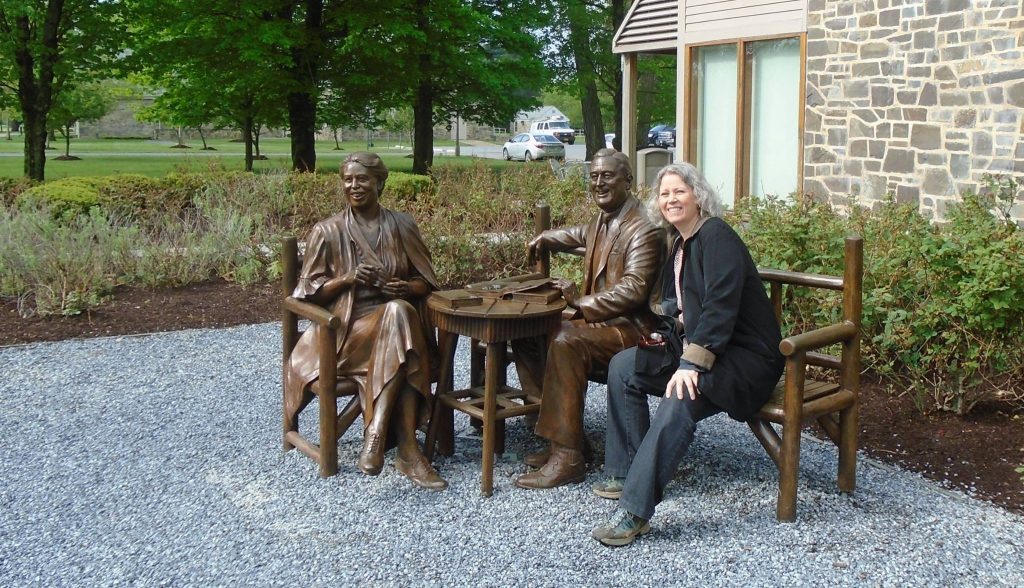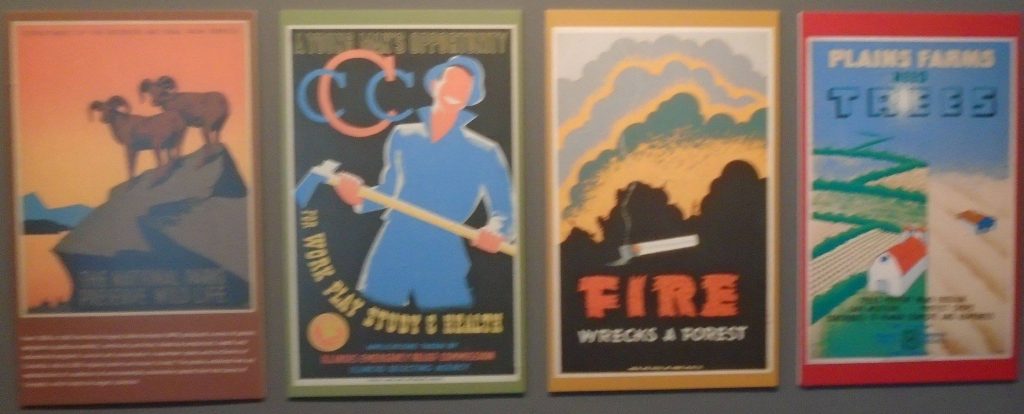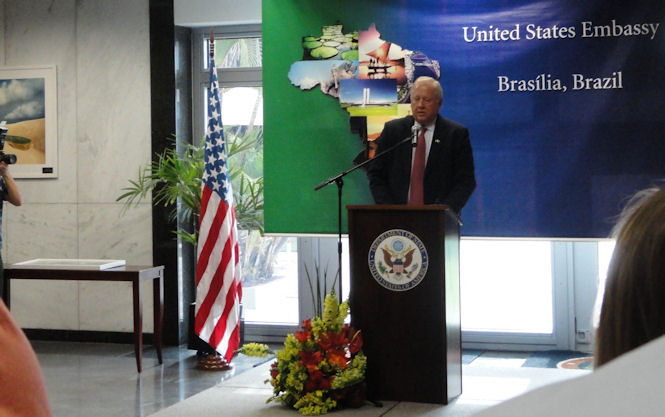These are the notes of a short presentation I will give at one of our conferences.
Nothing we do is rocket science. My guess is that most people think they already do most of the things we will talk about. But proper management is like diet and exercise. The principles are simple and well known, simple and well known, but not easy to do consistently and not much followed.
We worry about budget cuts. Let me stipulate right here and now that money is important. My programs might improve if I had more money, but maybe not. It depends on how it is used. Ben Franklin said that time is money. You can indeed sometimes trade one for the other. You might be able to buy a rush job. But time is less flexible than money and I will talk more about using time wisely and well than I will talk about specifically saving money. Time is our limiting factor because of how we work today. Our paradigm is partnership, not patronage. This means deploying intelligence to find points of maximum leverage and sometimes not contributing any money at all.
It is time for my short digression, my suitable story. This one is about a guy who is locked out of his office. He needs to get in immediately and calls a locksmith, who tells him that he can help him out, but it will cost $50. The guy agrees and the locksmith shows up. He takes a look at the lock and gives it a little tap. The lock springs open, whereupon the locksmith asks for his money. “$50, the guy protests, for making a little tap. Let me see an itemized bill.” The locksmith gives him what he asks. The receipt reads: $.05 for tapping the lock open; $49.95 for knowing where and how to do it.
As I said, nothing we do is rocket science. Our value added also comes from knowing where and how to do what we do.
We want sustainable programs. Sustainable implies something that can survive WITHOUT our continued infusion of OUR resources, so I have been trying to avoid things that cost a lot of money and mostly succeeding. Although has been said that some people have too much money but nobody has enough, I sometimes have enough money; I never have enough time.
Do important things – do the most important things. This implies saying “no” more often than saying “yes.”
I once heard piece of music composed by John Cage in 1952 called “Four thirty-three”. It is a three movement composition in which the musician plays nothing for four minutes and thirty-three seconds. The first time I “heard” this this I was not impressed. When the musician told me that most people could not understand that “silence too is music,” I stood firmly with most people.
But the idea is not that nothing happens, but rather that listeners fill in the lacunas with their own thoughts and maybe become more aware of ambient sounds & other environmental factors.
I still don’t really appreciate this “music” but I do respect the idea that you can sometimes be doing a lot by doing less or doing nothing. The spaces between are sometimes as important as the words or notes.
Some of us think that if we are in charge and doing something, that nothing is happening. This is probably true for bad leaders and poor managers, but it should not be the case for us.
This is my long way around saying that choosing what won’t do is as important as deciding what we will do. Making the right choices does indeed allow us to do more with less, at least more of the right things. This is a simple concept, but not easy. We have to cut good programs in order to have the time to do better ones.
Here are a few one liners
· Pick the low hanging fruit
· Do the easy things first
· Don’t spend a dollar to do make a dime decision
· Work through others
· It may be better to be a small part of something big than a big part of something small
This last one is a big part of our success in Brazil. We played an important role in Science w/o Borders, an ambitious program to send 101,000 young Brazilians overseas to study in the STEM fields. This is much bigger and will have more lasting effects than anything we could have done on our own. It is not our program, but I believe that we were necessary, if not sufficient for its success. There are only two ways to get anything done. Success comes from a combination of pushing harder and removing barriers. The mix matters. People often prefer to push harder, since it seems more active, but removing barriers is often more sustainable because it creates conditions where events naturally flow. It is like cutting a channel for water to run naturally rather than installing a pump to move the water.
So far, more than 15,000 students have gone to the U.S. on SwB program. It is an example of a true partnership. Our goals and those of our Brazilian partners are perfectly compatible. Our job is to make their lives easier, to make it clear and easy to do what they want, what we all want. A recent example is the acceptance in SwB of professional master’s degrees. It is the perfect SwB program, IMO, because it combines hands-on training with academic rigor. We worked to make information about such programs readily available to decision makers and make sure the pathway into American universities was clear and easy. After the President of Brazil accepted the inclusion, the Minister of Education announced that 1000 slots would be made available, all for the U.S. Why the U.S.? Only the U.S. offers such degrees. We like a level playing field where we own the grass. Everyone benefits and we have a natural and sustainable system.
In the fields of education and English teaching, our Mission teams and those of our Brazilian friends work seamlessly together. This remarkable achievement is based on trust and confidence. Our friends know that they can come to us with questions and problems and we will try to find answers and solutions. Beyond that, those connections can be and are made at the working level. Our connections are like Velcro, with lots of little hooks. We can do that because our people are energized.
Empower colleagues – This means what it says. If I get a request or task, I try to put the most appropriate person in charge. This may be an American; it may be a LES. But I give them the task. And this is the key point. When they ask me whether I want to see it before the send it to Washington/DCM/Ambassador, my answer is often “no, just copy me.” I usually don’t check it before it goes up. If I do check it, I pride myself on making few or no changes. They know what they are doing.
My colleagues also have authority to do many things autonomously. If it is within their scope of authority, they need not ask permission or fear retribution. I expect that they will consult with colleagues as appropriate. I may suggest that they work with particular ones, but I try not to. If they are the most appropriate person to do the job, I presume that they know more about the details than I do. It is presumptuous and arrogant for me to believe that I know better and it wastes a lot of time, mine and that of others.
Letting go is very hard in our State culture. All FSOs are smart. We have the capacity to remember lots of things and this gives us the illusion of control as well as the inclination to substitute our judgment for that of others. As leaders, our job is to create conditions where others can exercise judgment. We all can buy into this in theory, but in practice it means that I will never be able to know all that is happening in my organization. I don’t even try anymore. This is not because I am lazy (well, maybe). It is because I choose to use my limited time to do things more important, more appropriate for my particular talents or position or using my time in places where my value added is greatest.
There is a story about the dictator of North Korea, Kim Il Sung. According to the story, Kim knew pretty much everything and once when his engineers were building a dam, he immediately saw that they had not chosen the right location and made them move it. You can see why the place works as it does, but there is a meta-lesson. People evidently think it is a compliment to claim that the big boss would have the specific knowledge greater than his engineers. We know that if that is true, you either have a horrible leader or horrible engineers, probably both.
It is hard not to want to seem to know more than we do. We FSO don’t fear dismemberment or death as much as we fear being exposed as wrong or ignorant in front of our peers. We hate it when an Ambassador or DCM or pretty much any of our applicable colleagues asks for details and we just don’t know. The proper response is, “My colleague or partners are doing that. I trust them to get it right.” But are we comfortable with that answer?
We recently had a very successful visit by John Kerry. The PA part was to set up a kind of science fair, highlighting our successful partnership with Brazilians in the STEM fields. As usual, we had only a few hours to get going. I relied on my Brazilian partners. Only they could marshal and manage the resources we needed to make it happen on a Friday for a Monday program. When Kerry’s team asked me for details of what would be done, I had to tell them I was confident that our partners would do great work. When they wanted to do a final walkthrough, I had to tell them we could not impose on our our Brazilian government partners to open and pay overtime on a Sunday. When they wanted to make last minute changes, I had to tell them it was not possible. I explained to them that their putative (I did not use this precise adjective) needs were my most urgent priority, but the key to success, both now and later, was maintaining and strengthening relations with the Brazilian partner. They would still be here after Kerry left. To their credit, the team seemed to understand or at least did not stand in the way.
Our part of the visit worked perfectly. In fact, it was outstanding, because our Brazilian partners came through, as I knew they would. I am morally certain that if I had interfered more or facilitated more interference, it would have been less good, maybe even a failure. The difference is that when I did what I did, I bought the risk for myself. Had it failed, the failure would have been on me. Had I done the usual, chances of failure would have been much greater, but blame would not affix to me. I hope that John Maynard Keynes was wrong when he said, it is often better for the reputation to fail conventionally than to succeed unconventionally. But it is a risk we have to take. It is not an option; it is our duty.
You might think that I have drifted from the idea of saving money and time, but I have not. In the example of the visit, we saved time, money and stress. I did not deploy scores of people for this visit. We brought in no TDY. In fact, during the visit, we maintained previously scheduled a CAO conference. In other words, we handled the SecState visit, as we did a visit by Biden a couple weeks earlier, as business as usual that did not require extraordinary disruptions in our important priorities. We really did accomplish more with less of our own time and money by relying on outside partners and maintaining a disciplined approach of matching appropriate resources to the need, rather than throwing all we had at it.
Up top, I used the analogy of diet and exercise. We all know what to do, but often don’t do it. A VIP visit would be analogous to binge eating. We sometimes lose our discipline when we are beguiled or intimidated by important people. It is precisely at these times when we need to be stronger.
Let me finish with another story, only one last time. This is a story close to my heart. As some of you know, forestry is my hobby. I studied forestry in college and I own around 430 acres of forest land in Virginia. They seem very different, but forestry works a lot like public affairs. Things take a long time to develop and you can never control all the variables. In these complex and dynamic systems, results are often not commensurate with inputs, i.e. sometimes lots of inputs produce nothing, while little things can be decisive, but the key to success if understanding the environment, choosing the appropriate actions and then giving them time to develop in the way you know they will. A truly well-managed forest often seems like it is not much managed at all. It seems natural because we are working with natural systems.
Since 2005, I have had the pleasure of writing a quarterly article for Virginia Forests Magazine. I think my most recent article applies to both of my professional passions – forestry and public affairs.
What I said to my follow forestry folks applies to us in public affairs and I will quote it directly. “We are in a controversial business. Whether or not we want to acknowledge it, most (not some most) people misunderstand what we do. But our story is important and we should tell it with eagerness and vigor, not just to each other but to all who want to listen, and maybe even to some who don’t. Our narrative is not one of “leaving a smaller footprint” or “reducing damage.” Ours is the affirmative story or renewal and regeneration, of imagination, intelligence and innovation making things better.”
